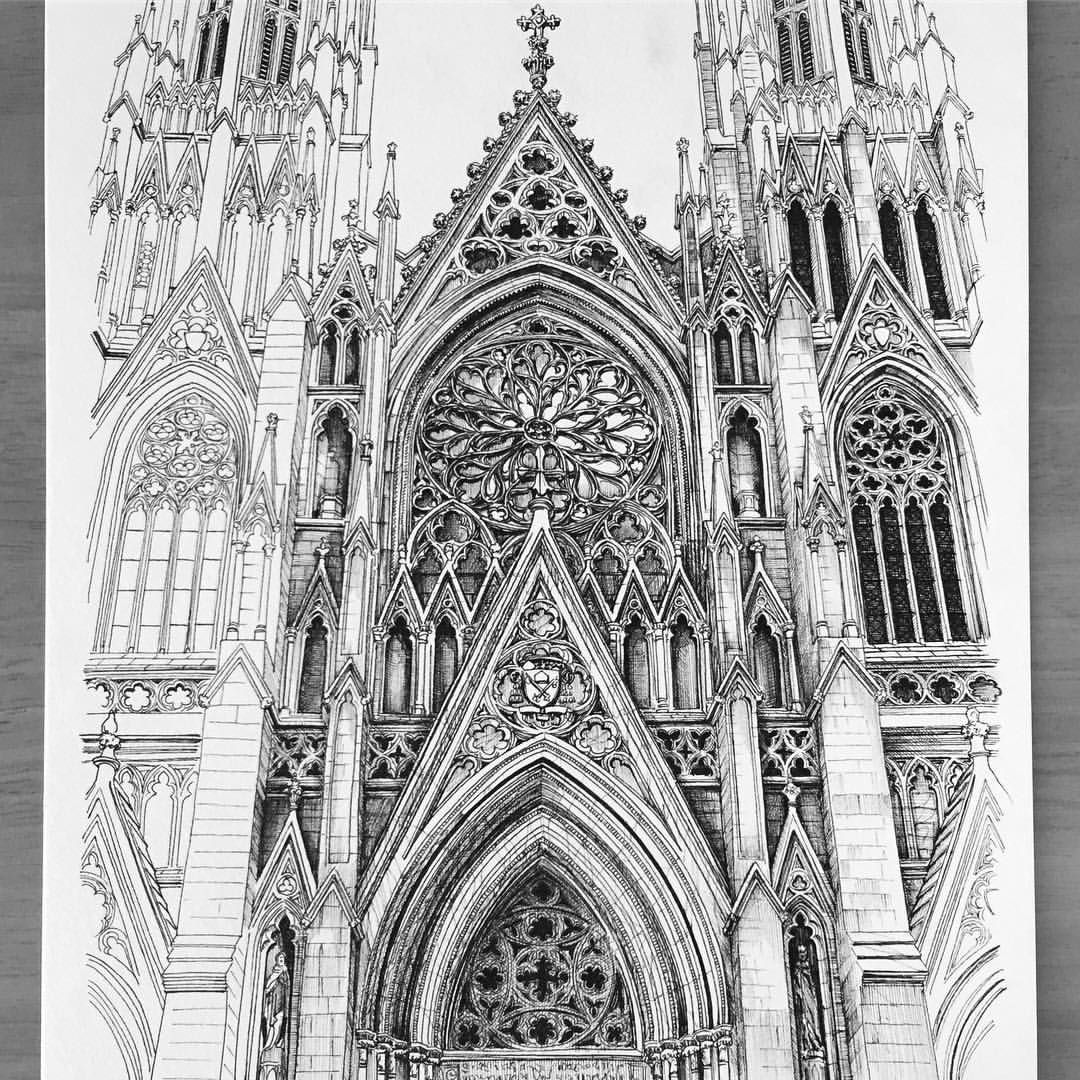Gothic Cathedral

Gothic cathedral
While the Gothic style can vary according to location, age, and type of building, it is often characterized by 5 key architectural elements: large stained glass windows, pointed arches, rib vaults, flying buttresses, and ornate decoration.
What are 7 characteristics of Gothic cathedrals?
Many castles adopted some of the characteristics of gothic architecture, too. ...
- Grand, Tall Designs, Which Swept Upwards With Height and Grace.
- The Flying Buttress. ...
- The Pointed Arch. ...
- The Vaulted Ceiling.
What are Gothic cathedrals especially known for?
The gothic style of architecture originated in Europe's Middle Ages. It is characterized by vertical proportions, pointed arches, external buttressing, and asymmetry.
What style is Gothic cathedral?
The Gothic style of architecture and art originated in the Middle Ages and was prevalent in Europe between the mid-12th century and the 16th century. It was heavily ornate and conceptual, with its architecture characterised by high buildings, intricate aesthetics, cavernous spaces and expansive walls.
What are the 4 main features of Gothic style?
Gothic architecture has a set of unique features that set it apart from all other styles. Most importantly, it is characterized by long pointed arches, flying exterior buttresses, stained-glass windows that were longer than before, ribbed vaults, and spires.
Why are churches called Gothic?
Gothic architecture was named for the Goths, a nomadic Germanic group that fought against Roman rule in the late 300s and early 400s. Their ascent is widely believed to have marked the beginning of the medieval period across Europe.
What was the most important features of a Gothic church?
The defining design element of Gothic architecture is the pointed or ogival arch. The use of the pointed arch in turn led to the development of the pointed rib vault and flying buttresses, combined with elaborate tracery and stained glass windows.
What are the 3 Gothic elements?
This genre is dark, eerie, and mysterious, often containing elements of terror, horror, and the macabre and the bizarre. Common themes and motifs of the Gothic include power, confinement, and isolation.
What does Gothic style mean?
Gothic fashion is a clothing style marked by dark, mysterious, antiquated, homogenous, and often genderless features. It is worn by members of the Goth subculture. Dress, typical gothic fashion includes dyed black hair, exotic hairstyles, dark lipstick and dark clothing.
Why is Gothic so important?
The genre has an almost unique ability to integrate into some of the most unexpected places, once again ensuring its indomitability. It has also provided a vehicle for writers to explore considerations of sexuality, repression, politics, race and a myriad of other anxieties of their society.
Who started Gothic cathedrals?
Abbot Suger and St Denis Basilica. The Gothic style first appeared in France in the mid-12th century in an Abbey, St Denis Basilica, built by Abbot Suger (1081–1151).
Who built Gothic cathedrals?
The Gothic style originated in 12th-century CE France in a suburb north of Paris, conceived of by Abbot Suger (1081-1151 CE), a powerful figure in French history and the mastermind behind the first-ever Gothic cathedral, the Basilica of Saint-Denis.
What religion are Gothic churches?
Gothic Christianity refers to the Christian religion of the Goths and sometimes the Gepids, Vandals, and Burgundians, who may have used the translation of the Bible into the Gothic language and shared common doctrines and practices.
What are the 5 Gothic elements?
Gothic elements include the following:
- Setting in a castle.
- An atmosphere of mystery and suspense. ...
- An ancient prophecy is connected with the castle or its inhabitants (either former or present). ...
- Omens, portents, visions. ...
- Supernatural or otherwise inexplicable events. ...
- High, even overwrought emotion. ...
- Women in distress.
Is Gothic Catholic?
Arguing that despite the predominance of Catholic motifs in gothic novels (monks, nuns, abbeys, and confessionals have long been interpreted as signifying subversiveness), the gothic was neither anti-Catholic nor anti-church, and instead part of a British culture much more sympathetic towards Catholicism during the
Why are Gothic cathedrals so tall?
Waging a constant battle against gravity, master masons, who both designed and built these cathedrals, wanted to create as much uninterrupted vertical space as possible in their stone structures. These soaring heights provided a dramatic interior which served to reinforce the power of the church.
What are the 10 Gothic elements?
Terror and Wonder: 10 key elements of Gothic literature
- Set in a haunted castle or house.
- A damsel in distress. ...
- An atmosphere of mystery and suspense. ...
- There is a ghost or monster. ...
- The weather is always awful. ...
- Dreaming/nightmares. ...
- Burdened male protagonist. ...
- Melodrama.
What does Gothic mean in art?
Gothic art is a style of painting, architecture, and sculpture that began in Paris the middle of the 12th century and showed up throughout Europe all the way into the 1500s. The architectural style's definitive feature is the pointed arch, while the definitive feature of Gothic painting and sculpture is naturalism.
Is Gothic style religious?
The gothic may be a gamut of disparate architectural styles, but what ties it together is its sacred purpose. The majority of gothic buildings that have survived were built to the glory of God.
Are Gothic churches dark?
Most churches and chapels are known for beautiful stained glass windows, but gothic architecture is unique in that one of its main design goals is to brighten a space with large amounts of light. This is often done with enormous windows.










Komentar
Posting Komentar